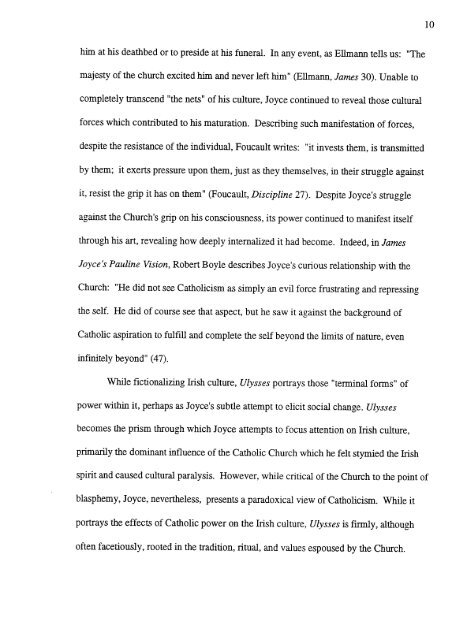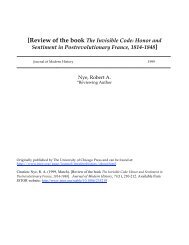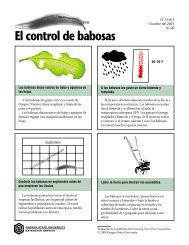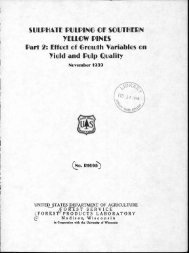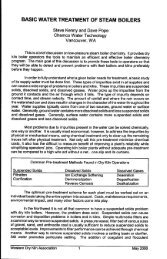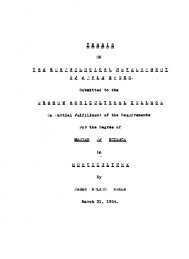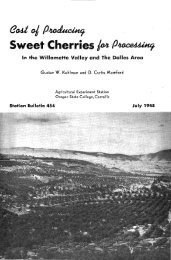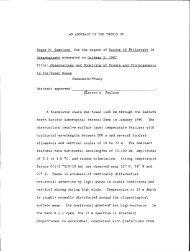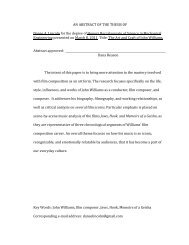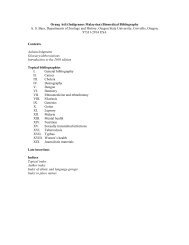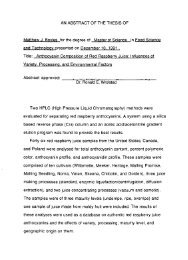Faubourg Saint Patrice - ScholarsArchive at Oregon State University
Faubourg Saint Patrice - ScholarsArchive at Oregon State University
Faubourg Saint Patrice - ScholarsArchive at Oregon State University
You also want an ePaper? Increase the reach of your titles
YUMPU automatically turns print PDFs into web optimized ePapers that Google loves.
him <strong>at</strong> his de<strong>at</strong>hbed or to preside <strong>at</strong> his funeral. In any event, as Ellmann tells us: "The<br />
majesty of the church excited him and never left him" (Ellmann, James 30). Unable to<br />
completely transcend "the nets" of his culture, Joyce continued to reveal those cultural<br />
forces which contributed to his m<strong>at</strong>ur<strong>at</strong>ion. Describing such manifest<strong>at</strong>ion of forces,<br />
despite the resistance of the individual, Foucault writes: "it invests them, is transmitted<br />
by them; it exerts pressure upon them, just as they themselves, in their struggle against<br />
it, resist the grip it has on them" (Foucault, Discipline 27). Despite Joyce's struggle<br />
against the Church's grip on his consciousness, its power continued to manifest itself<br />
through his art, revealing how deeply internalized it had become. Indeed, in James<br />
Joyce's Pauline Vision, Robert Boyle describes Joyce's curious rel<strong>at</strong>ionship with the<br />
Church: "He did not see C<strong>at</strong>holicism as simply an evil force frustr<strong>at</strong>ing and repressing<br />
the self. He did of course see th<strong>at</strong> aspect, but he saw it against the background of<br />
C<strong>at</strong>holic aspir<strong>at</strong>ion to fulfill and complete the self beyond the limits of n<strong>at</strong>ure, even<br />
infinitely beyond" (47).<br />
While fictionalizing Irish culture, Ulysses portrays those "terminal forms" of<br />
power within it, perhaps as Joyce's subtle <strong>at</strong>tempt to elicit social change. Ulysses<br />
becomes the prism through which Joyce <strong>at</strong>tempts to focus <strong>at</strong>tention on Irish culture,<br />
primarily the dominant influence of the C<strong>at</strong>holic Church which he felt stymied the Irish<br />
spirit and caused cultural paralysis. However, while critical of the Church to the point of<br />
blasphemy, Joyce, nevertheless, presents a paradoxical view of C<strong>at</strong>holicism. While it<br />
portrays the effects of C<strong>at</strong>holic power on the Irish culture, Ulysses is firmly, although<br />
often facetiously, rooted in the tradition, ritual, and values espoused by the Church.<br />
10


